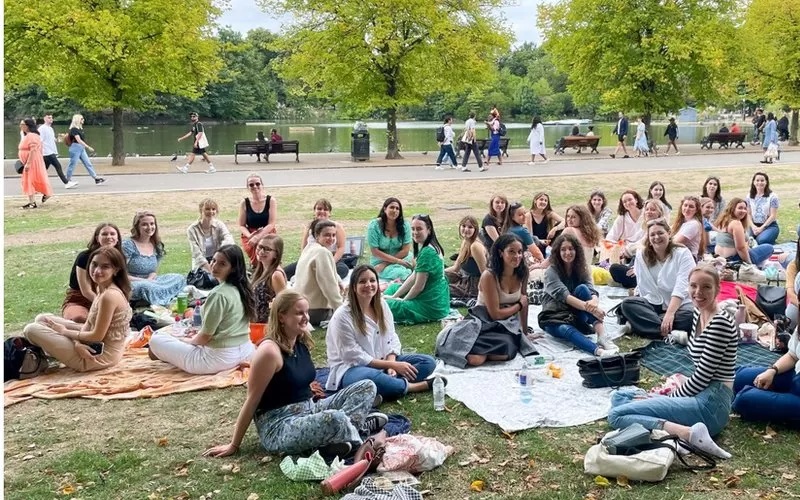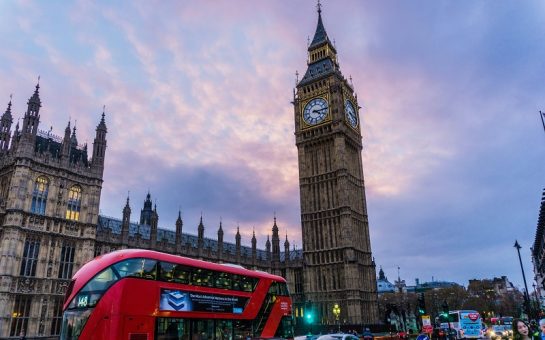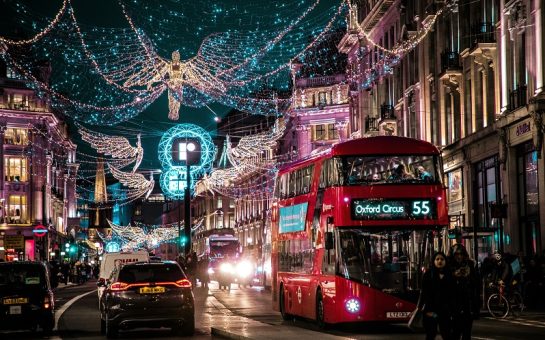Recent data from the Opinions and Lifestyle Survey conducted by the Official of National Statistics indicates the continued prevalence of loneliness experienced by adults.
The survey collected data on public opinions and social trends, asking participants about their feelings of loneliness, as well as about their levels of well-being, life satisfaction, anxiety, and happiness.
From the data collection period of 14 to 25 June 2023, the survey found 25% of adults reported they feel lonely always, often, or some of the time.
Holly Cooke, who founded The London Lonely Girls Club, said: “Loneliness and the need for connection is clearly such a common feeling and it’s just not something we talk about very often.
“It’s a double-edged sword. It’s sad that so many people are feeling lonely and craving community, but it’s also amazing because initiatives like ours are able to be there and be in that spot where we can provide community for people.”
The London Lonely Girls Club is a volunteer-run initiative Cooke set up just over five years ago when she first moved to London and found herself googling ‘how to make friends in London’ with little success.
What started out with less than ten people and initially grew very slowly has now snowballed into a thriving community, which runs five or six regular community events each month and has a combined digital following of nearly 50 000 across their social media groups.
From picnics in the park, to pub trips and puppy yoga, and an active Facebook group where strangers find friends and housemates, The London Lonely Girls Club seeks to facilitate meaningful connections and community for young women in London.
In the most recent ONS dataset, in response to the question ‘how often do you feel lonely?’, 24% responded ‘occasionally’, 20% responded ‘some of the time’ and 6% responded ‘often/always’.
According to a report commissioned by the Greater London Authority, ‘Reconceptualising Loneliness in London’, loneliness is felt unequally and disproportionately impacts some groups of the population within London, including young people.
Authored by Neighbourly Lab, Campaign to End Loneliness and What Works Centre for Wellbeing, the report found that while 8% of Londoners experience severe loneliness, this figure rises to 12% for young Londoners.
The report also found that Londoners are more likely than others in the UK to be affected by severe forms of loneliness – 700,000 of them feel lonely ‘most’ or ‘all of the time’.
Reflecting on the growth of The London Lonely Girls Club, whose membership tripled in size during the pandemic, Cooke said: “There is very little out there once you leave the education system to help people connect and make friends, particularly if you aren’t sporty or you aren’t part of a religious community.
“The pandemic really saw rapid growth because of the realisation of the need of how lonely people actually were and how much human connection they actually wanted.”
Cooke noted that while many in the 18-30 demographic left London, many of those who remained quickly discovered that the social connections which they had formed from going to the office or daily or going on nights out, didn’t necessarily exist in the same way anymore.
She said: “That’s where our community came in – to give people, even if it was just an online space, the chance to connect and make friends, or to do the one permitted walk a day with someone who wasn’t their housemate or partner.”
The ONS data shows that responses to questions about loneliness have remained at steady levels, with the results fluctuating only by a few percentage points over the past twelve months.
Looking to the future then, Cooke hopes that The London Lonely Girls Club will continue to provide a space of community and friendship for young women in London, and hopes that some of the team will be able to work at least part-time on the initiative.
There are also plans in the works for the launch of a similar initiative for men in the coming months, following years of feedback suggesting the need for an equivalent community, as well as plans to expand to other major UK cities such as Manchester, Birmingham, and Leeds.
The Opinions and Lifestyle survey by the ONS also questioned participants on important issues facing the UK today, and found that the cost of living crisis ranked highest, at 91%.
This was followed by the NHS (82%), the economy (77%), climate change and the environment (60%), housing (58%), and crime (53%).
Featured image credit: Holly Cooke, The London Lonely Girls Club





